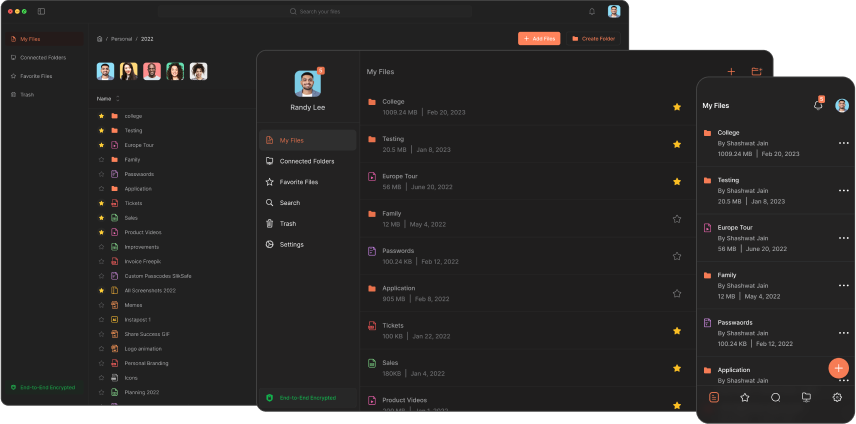Humanize AI: Discover the Free Tools Transforming Digital Experiences
In the fast-evolving world of artificial intelligence (AI), one of the most sought-after objectives is creating more human-like interactions. Whether it's enhancing customer service, personalizing marketing strategies, or revolutionizing how businesses operate, the drive to humanize AI is strong. For those exploring this landscape, the great news is that several free tools are available to help achieve this goal. This blog post will introduce you to humanize AI, outline the importance of humanizing AI, and showcase some of the best free tools available.
What Does It Mean to Humanize AI?
Humanizing AI means creating systems that understand, interpret, and respond in ways that feel naturally human. This involves:
- Emotion Recognition: Detecting and appropriately responding to human emotions.
- Natural Language Processing (NLP): Understanding and generating human languages fluently.
- Personalization: Adapting responses based on user preferences and past interactions.
- Empathy: Demonstrating an understanding of users' feelings and contexts.
Why is Humanizing AI Important?
With the increasing integration of AI into daily life, humanizing AI can bring several benefits:
- Enhanced User Experience: More intuitive and relatable interactions.
- Higher Engagement Rates: Users are more likely to engage with systems that "understand" them.
- Customer Retention: Satisfied users are more likely to return.
- Efficiency: Human-like systems can solve complex queries faster and more accurately.
Free Tools to Humanize AI
Now that we understand the significance, let's explore some free tools that can help you humanize AI:
1. Google Cloud Natural Language API
Google Cloud Natural Language API provides powerful NLP capabilities, allowing you to analyze and understand text. Some features include sentiment analysis, entity recognition, and syntactic analysis.
- Features: Emotion detection, language understanding, text classification.
- Usage: Ideal for chatbots, sentiment analysis in customer reviews, and more.
2. IBM Watson Tone Analyzer
IBM Watson Tone Analyzer helps to understand emotional and language tones in written text. This can be particularly useful in customer service to gauge customer satisfaction and adapt responses accordingly.
- Features: Detects emotions like joy, anger, fear, and sadness.
- Usage: Sentiment analysis in emails, reviews, and social media posts.
3. Microsoft Azure Text Analytics
Microsoft Azure Text Analytics offers various text analytics features, including sentiment analysis, key phrase extraction, and language detection.
- Features: Multilingual support, real-time language processing, and emotion detection.
- Usage: Multi-language NLP applications, real-time customer feedback analysis.
4. OpenAI GPT-3
OpenAI GPT-3 is a language model that uses machine learning to generate human-like text. It can generate anything from creative writing to technical guides.
- Features: Context-aware text generation, conversation simulations.
- Usage: Chatbots, content generation, and automated customer service.
5. Emotion Recognition APIs
Various free APIs are available to recognize emotions in text and voice input. These APIs can be integrated into applications to provide more empathetic and human-centric interactions.
- Examples: Affectiva, EmoVu.
- Usage: Enhancing chatbots, monitoring user satisfaction, personalized marketing.
Step-by-Step Guide: Using Google Cloud Natural Language API
To illustrate how you can use these tools, let's walk through setting up and using Google Cloud Natural Language API.
-
Create a Google Cloud Account: Sign up for a free Google Cloud account if you don't have one.
-
Enable the Natural Language API: Navigate to the API & Services dashboard and enable the Natural Language API.
-
Set Up a Project: Create a new project and add billing information to access the free tier.
-
Get API Credentials: Generate API keys or OAuth credentials to authenticate your requests.
-
Install Client Libraries: Install the Google Cloud client libraries in your development environment. bash pip install google-cloud-language
-
Analyze Text: Use the following Python script to analyze text for sentiment and entities. python from google.cloud import language_v1
client = language_v1.LanguageServiceClient()
Text input
text = "Google Cloud Natural Language API is amazing!"
Document configuration
document = language_v1.Document(content=text, type_=language_v1.Document.Type.PLAIN_TEXT)
Sentiment analysis
sentiment = client.analyze_sentiment(request={'document': document}).document_sentiment print(f"Sentiment: {sentiment.score}, {sentiment.magnitude}")
Entity recognition
entities = client.analyze_entities(request={'document': document}).entities for entity in entities: print(f"Entity: {entity.name}, Type: {entity.type_}")
Tips and Best Practices for Humanizing AI
Here are some best practices to keep in mind when humanizing AI:
- Consistency: Ensure that the AI system maintains a consistent tone and level of empathy.
- Feedback Loop: Implement mechanisms to collect user feedback for continual improvement.
- Real-Time Adaptation: Use real-time data to adapt responses quickly.
- Transparency: Make it clear when users are interacting with AI to manage expectations.
Conclusion
Humanizing AI is a significant step towards more engaging and efficient digital interactions. Free tools like Google Cloud Natural Language API, IBM Watson Tone Analyzer, and OpenAI GPT-3 make it easier than ever to innovate in this space. By leveraging these tools correctly, you can create AI systems that resonate more deeply with users, enhancing their overall experience.
Whether you’re a developer, marketer, or business owner, understanding and implementing humanized AI can set you apart in an increasingly competitive landscape. Get started today and transform the way you engage with your audience.
Download Now
The Slikest Files Experience Ever Made
